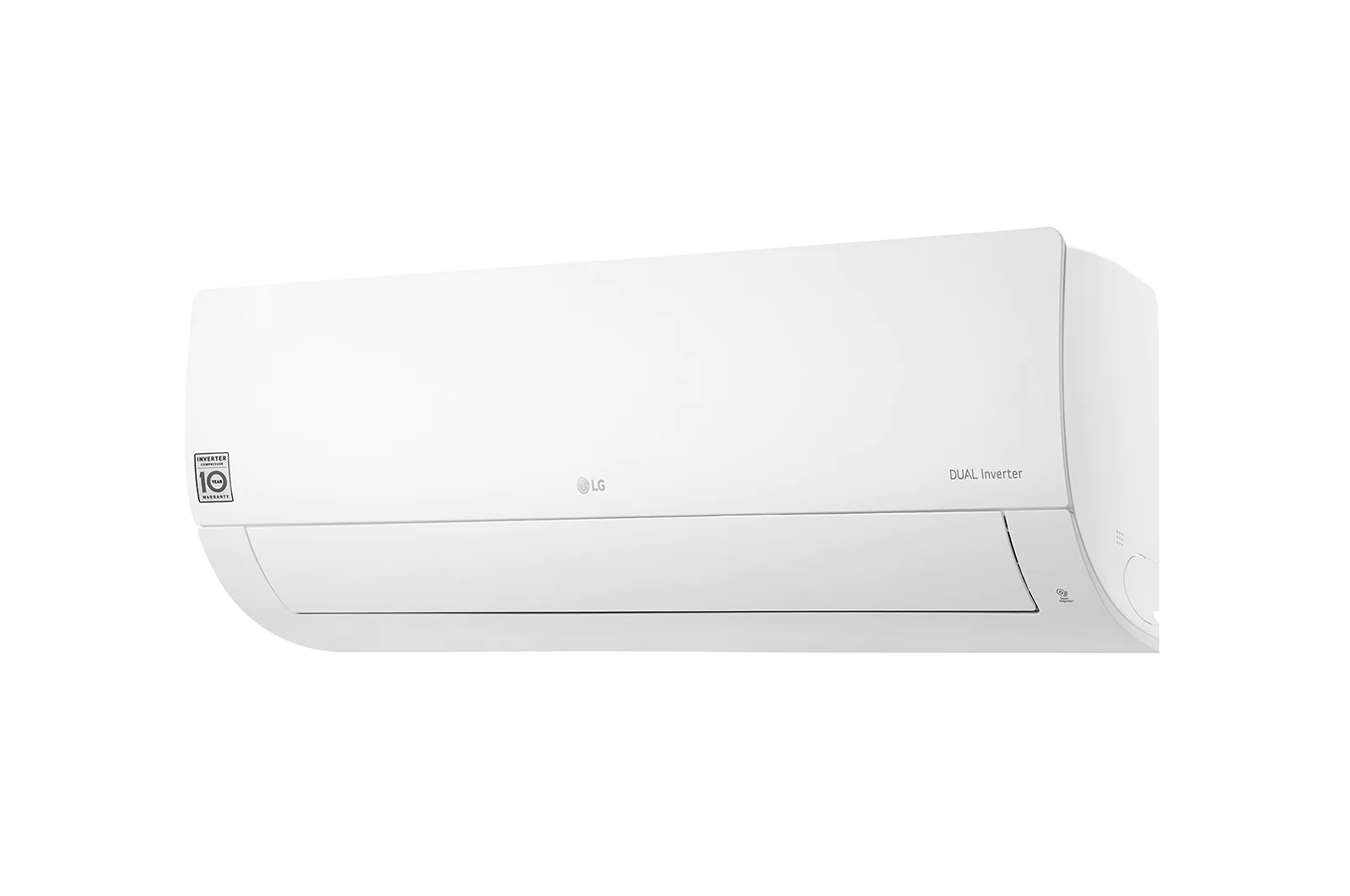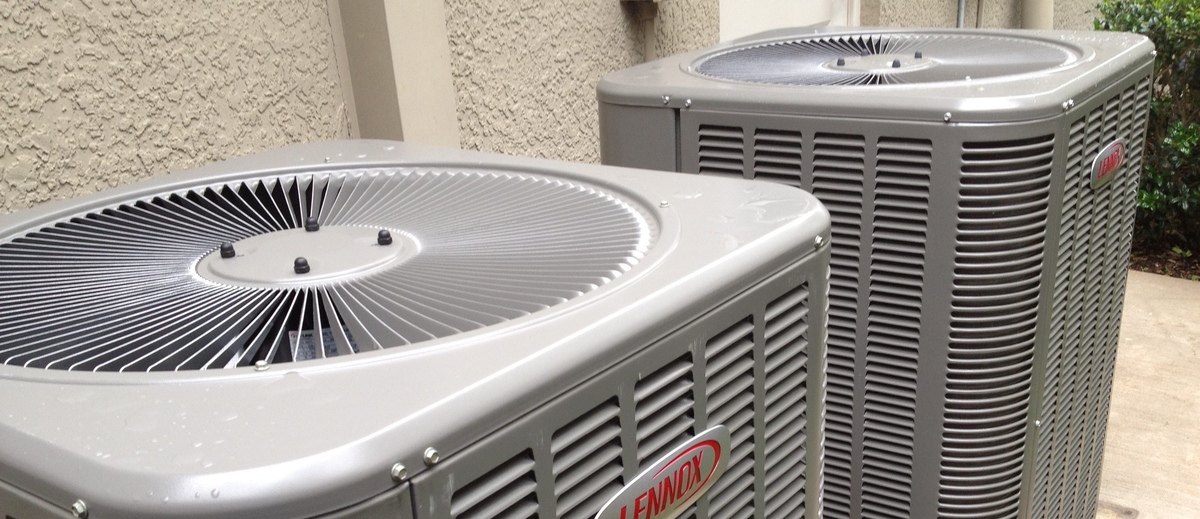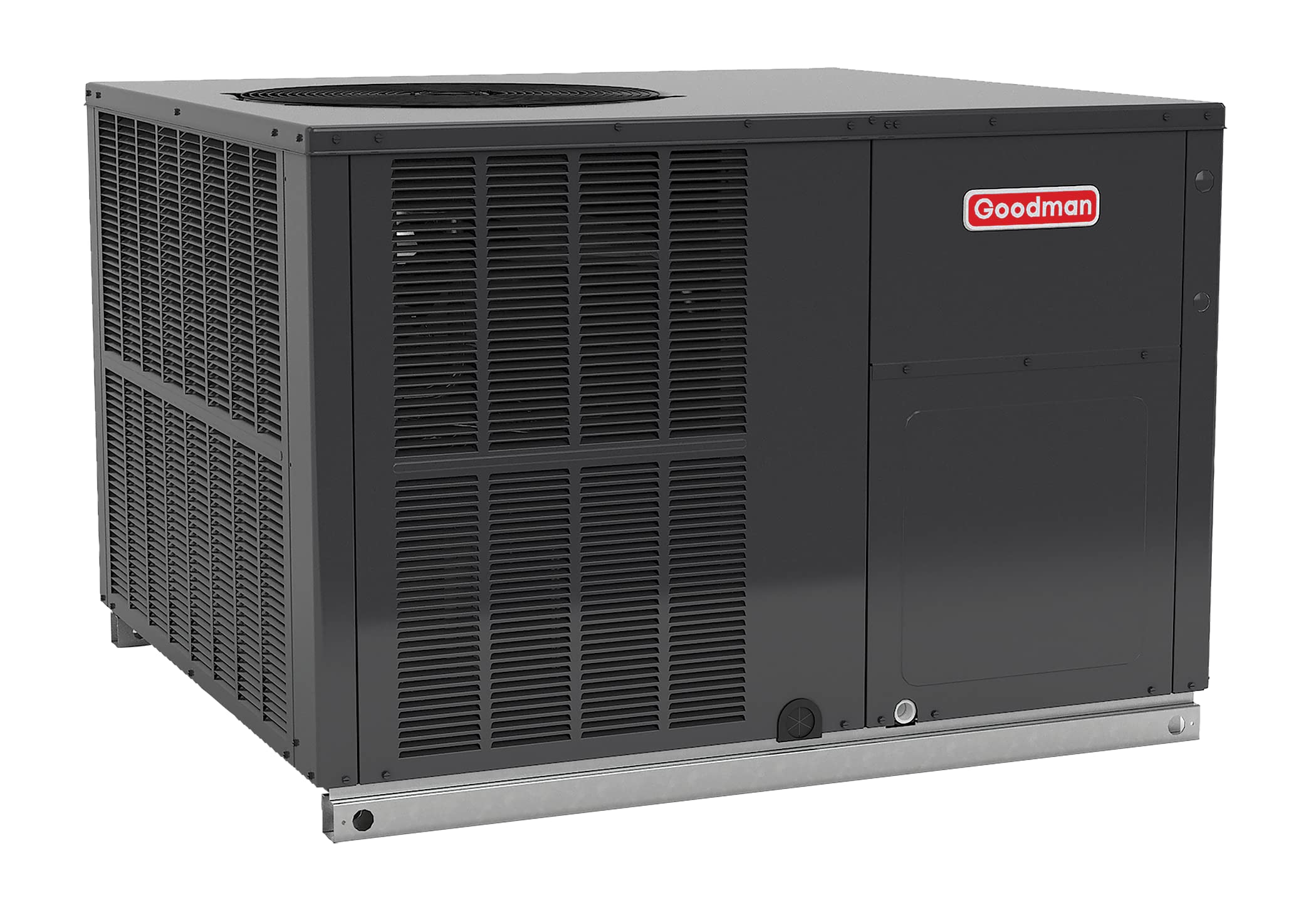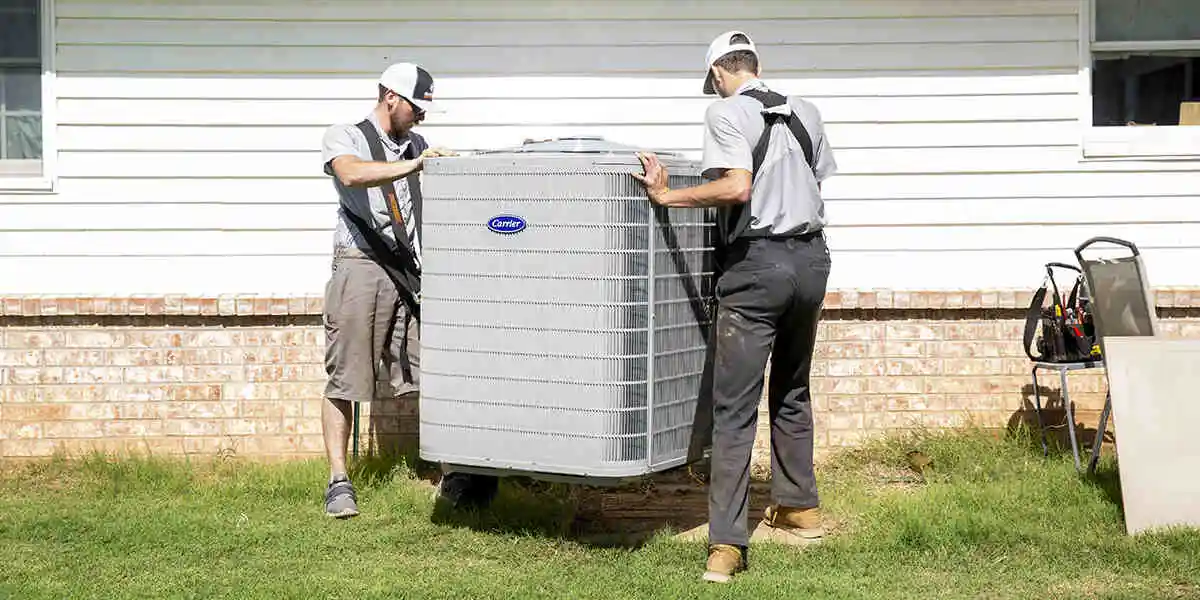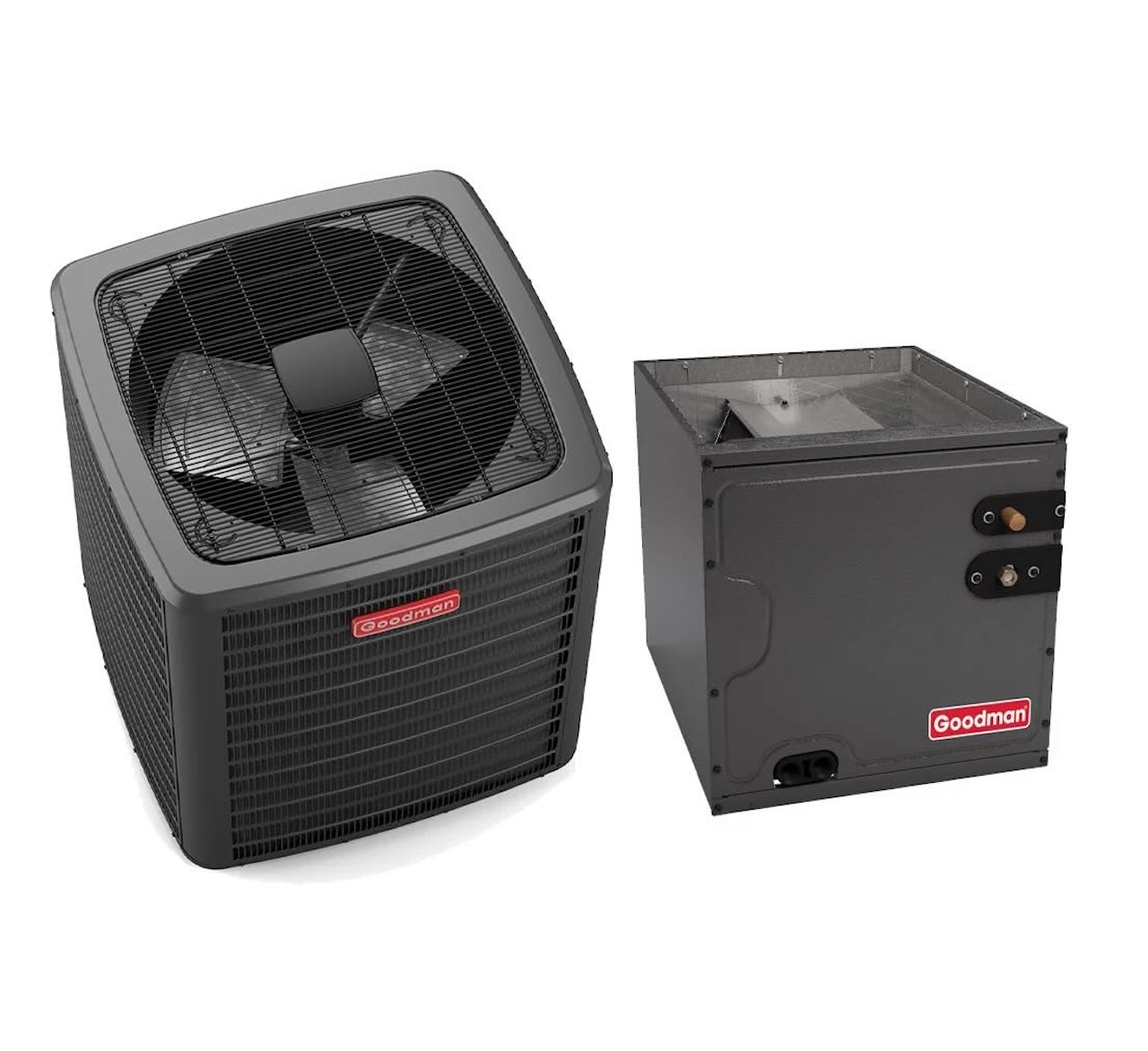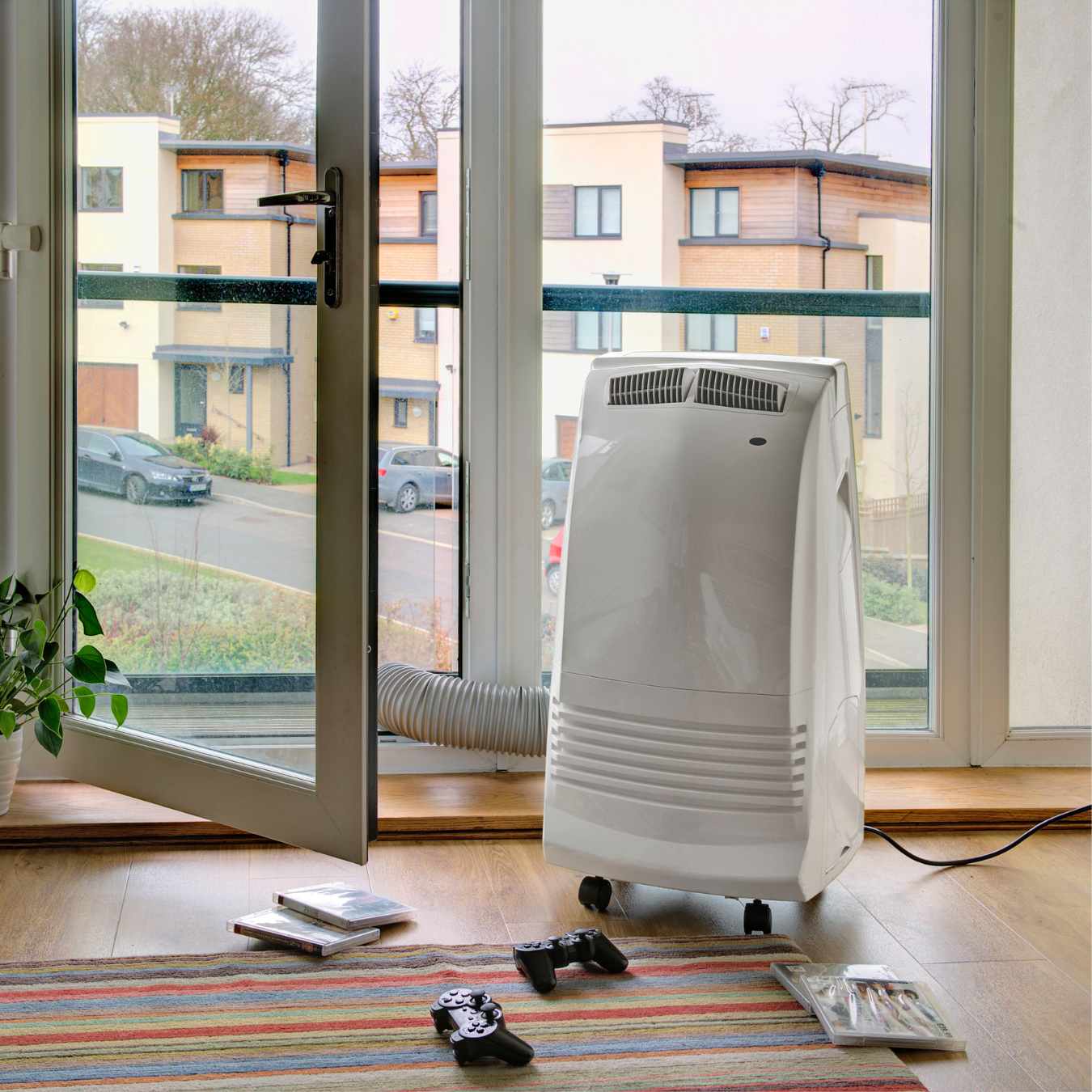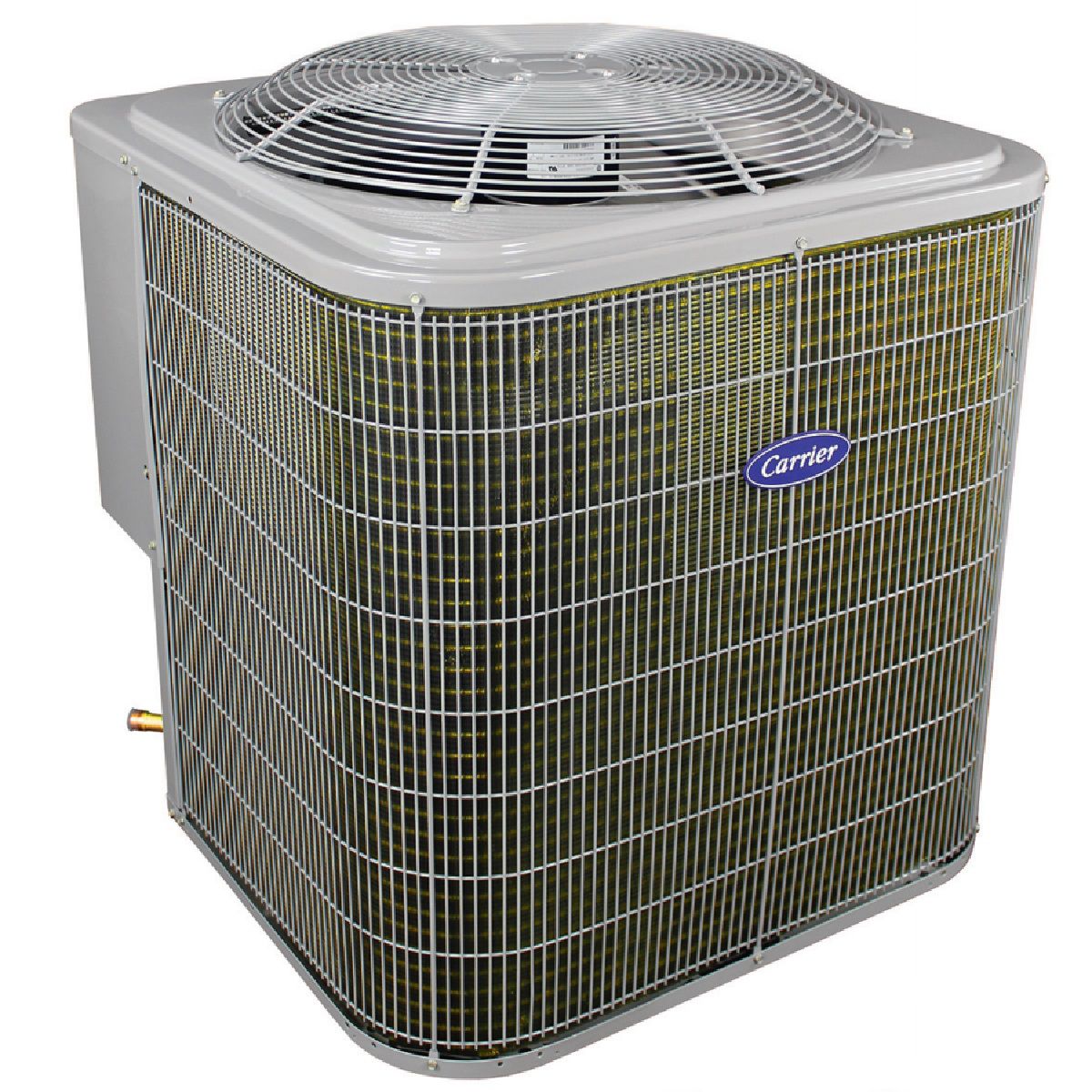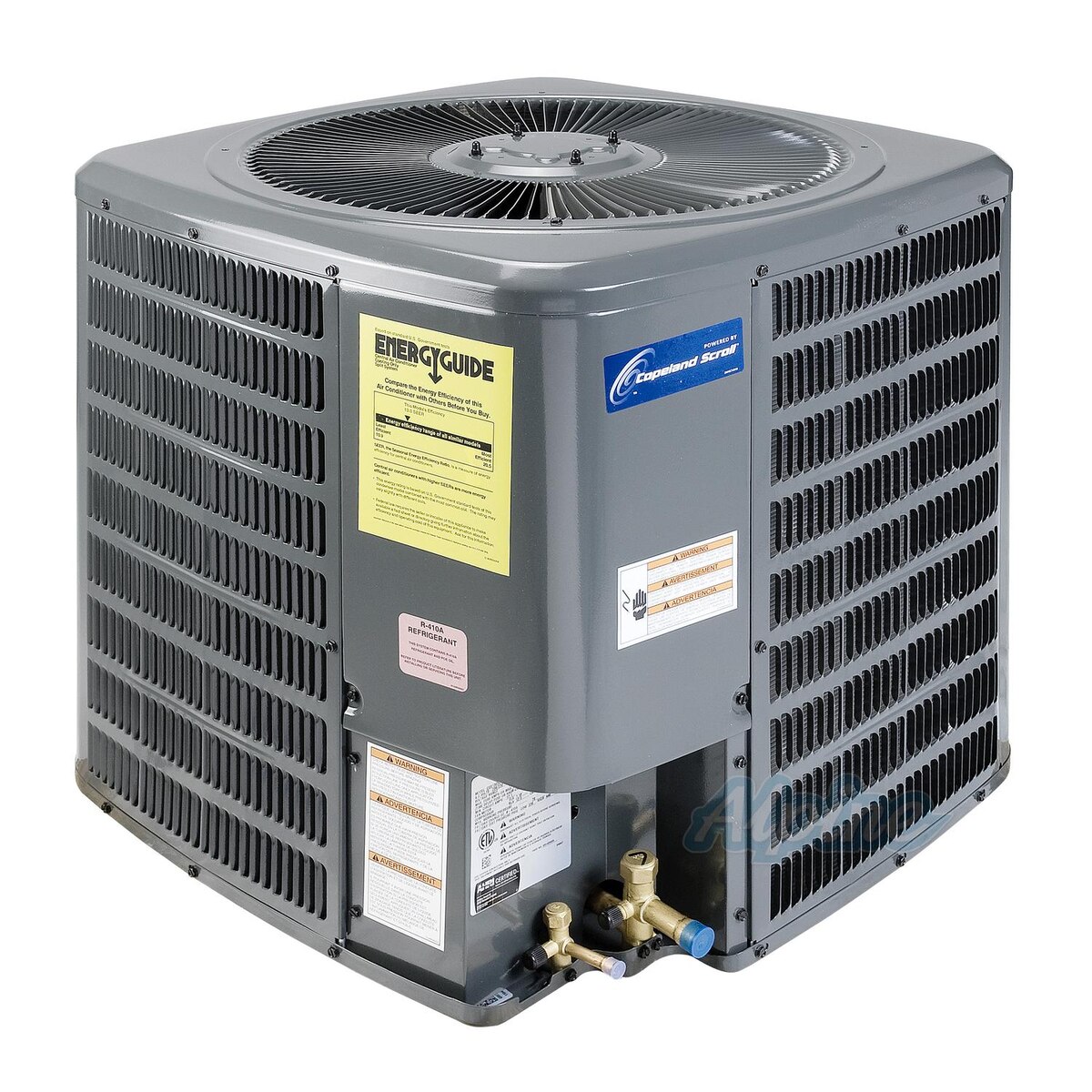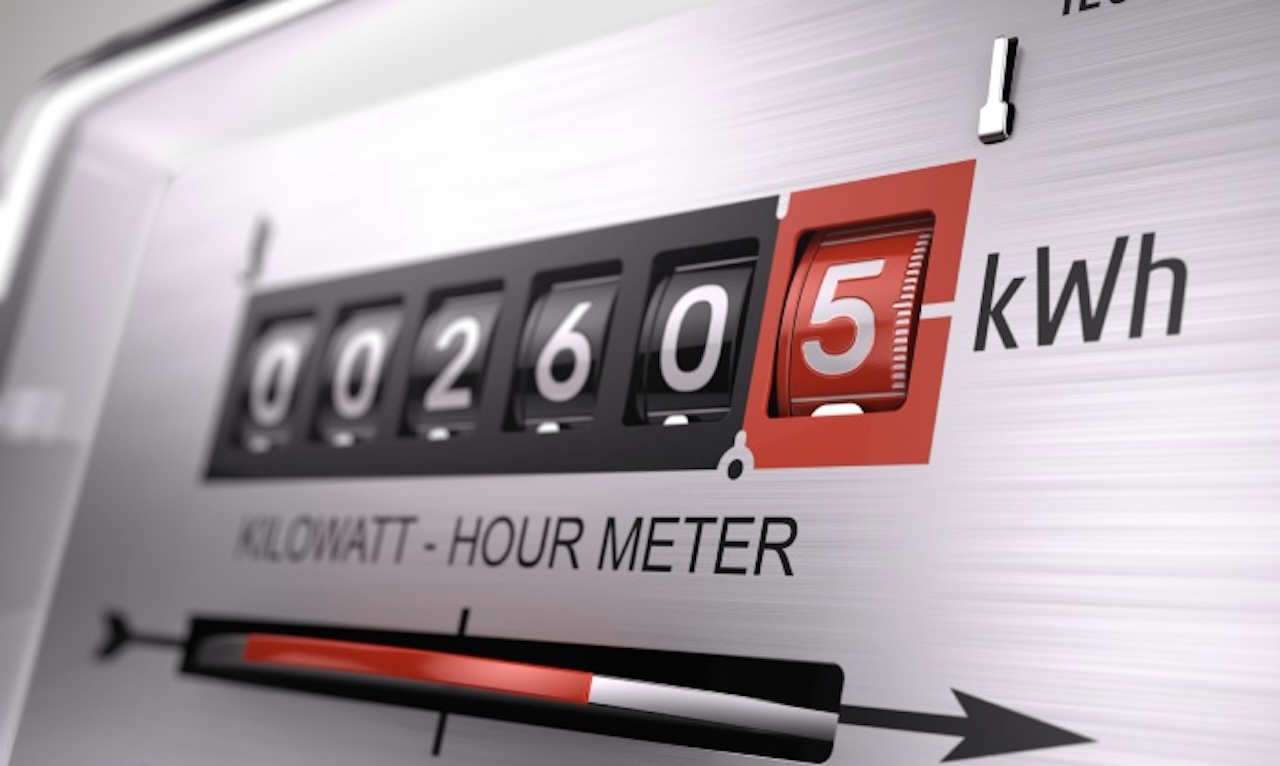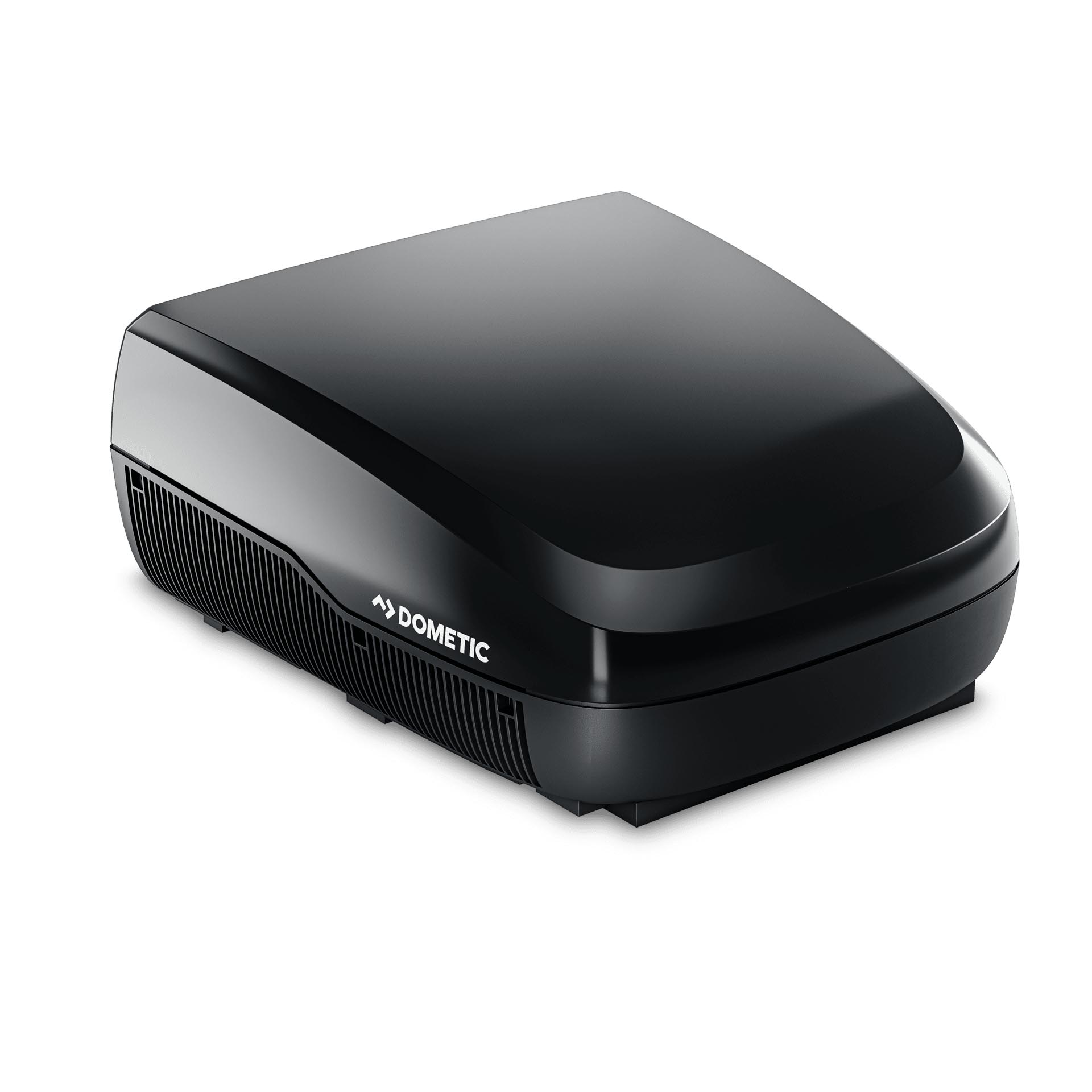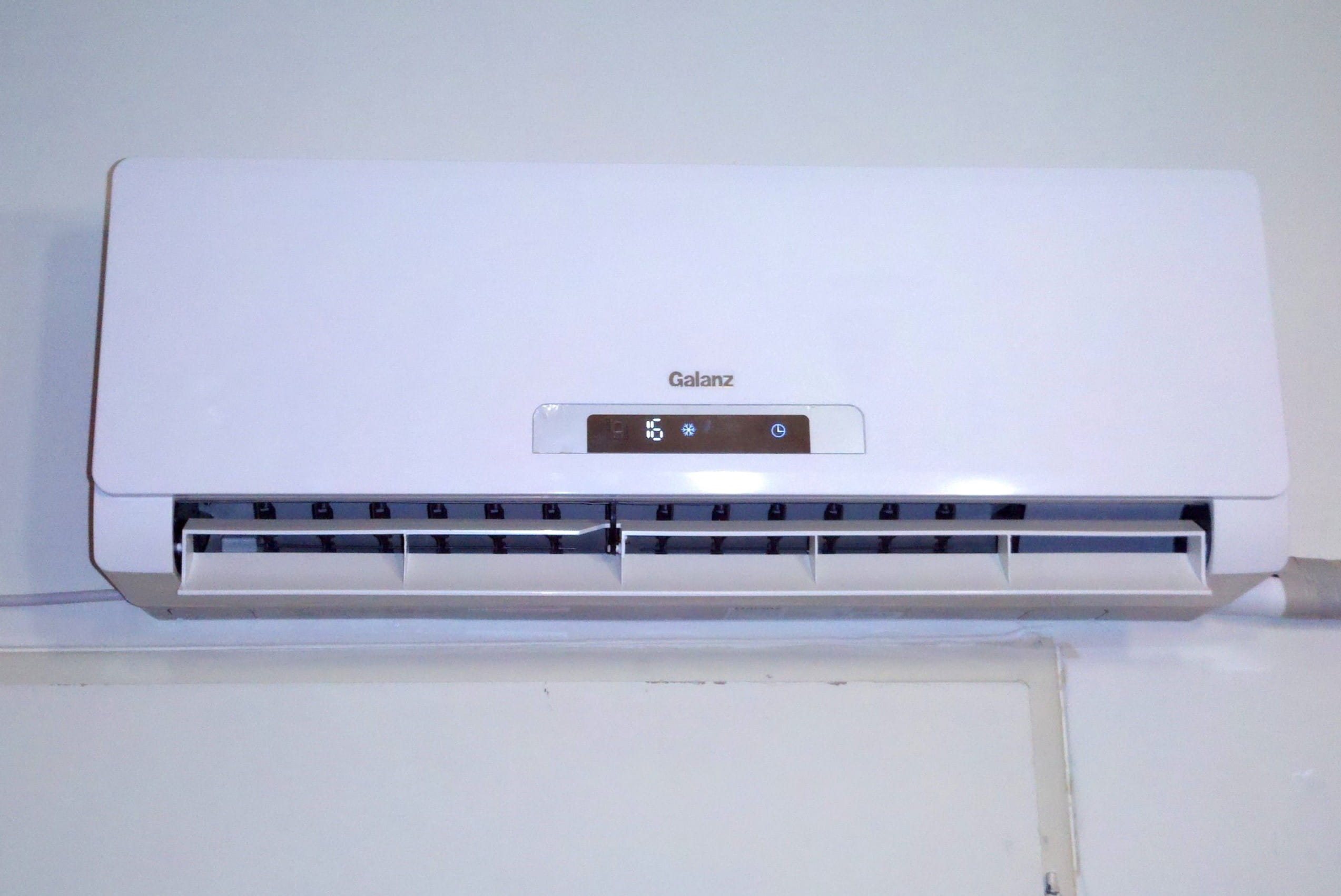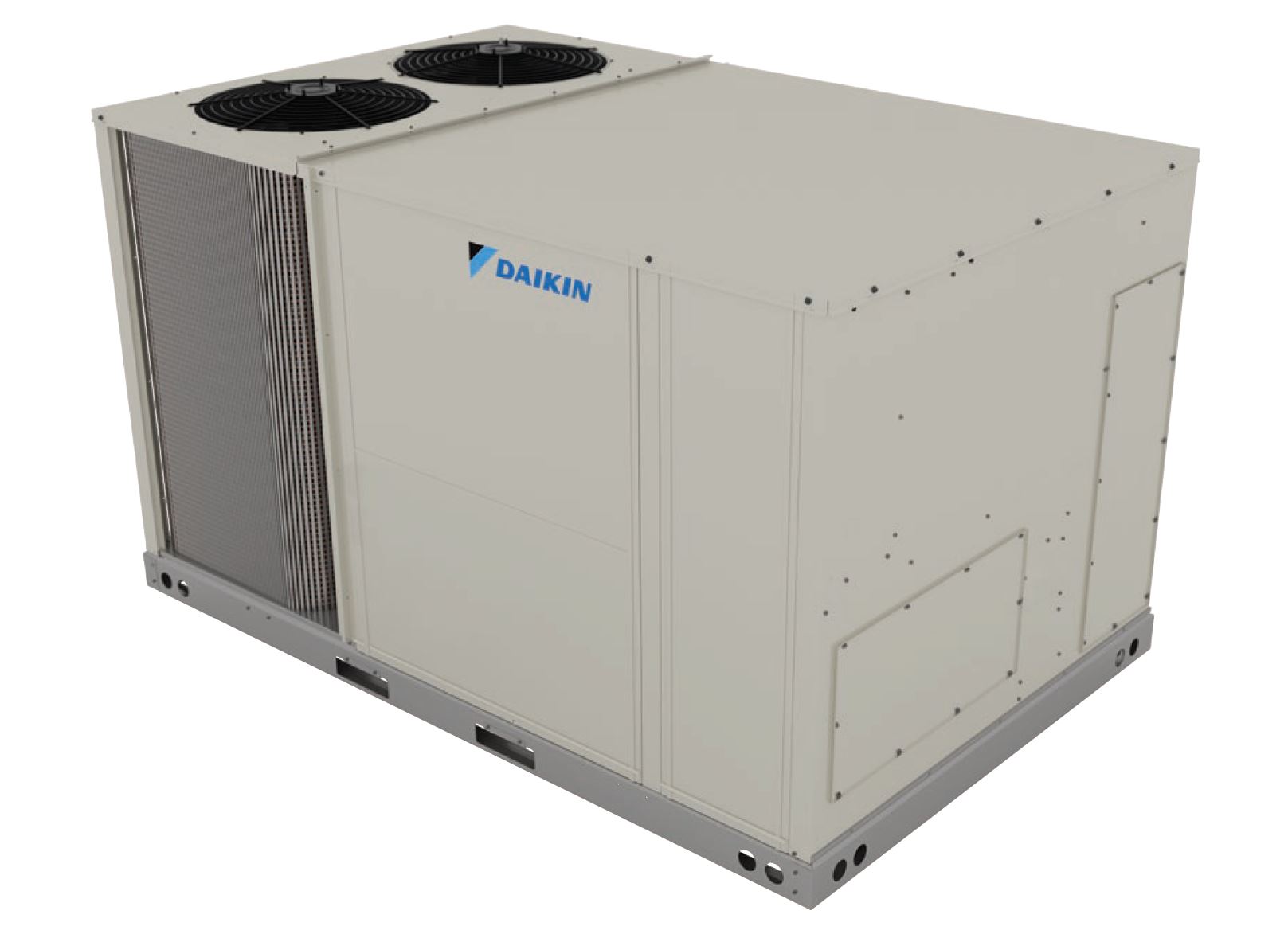Home>Home Maintenance>How Many Tons Should An Air Conditioner Be?
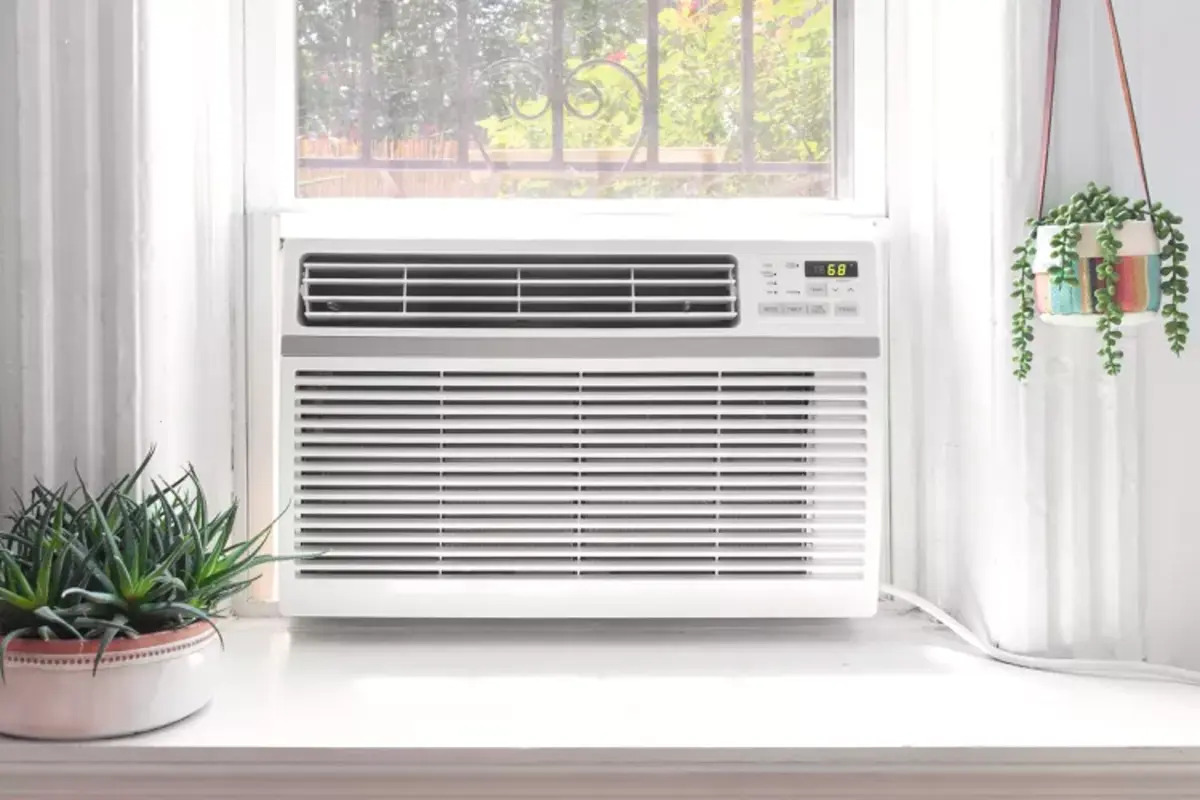

Home Maintenance
How Many Tons Should An Air Conditioner Be?
Modified: March 7, 2024
Find out the ideal tonnage for your air conditioner with our comprehensive guide on home maintenance. Discover the right size to ensure efficient cooling and optimal energy savings.
(Many of the links in this article redirect to a specific reviewed product. Your purchase of these products through affiliate links helps to generate commission for Storables.com, at no extra cost. Learn more)
Introduction
Welcome to the world of air conditioning! When it comes to choosing the right air conditioner for your home, one of the most crucial decisions you will need to make is determining the appropriate cooling capacity. This is typically measured in tons, a term which refers to the amount of heat your air conditioner can remove from a space in one hour.
Choosing the right tonnage for your air conditioner is essential to ensure that your home remains cool and comfortable throughout the hot summer months. While the process may seem complex, it can be simplified by taking into consideration a few key factors. By understanding these factors, you’ll be able to make an informed decision and select the perfect air conditioner for your home’s specific needs.
In this article, we will guide you through the process of determining how many tons your air conditioner should be for optimal performance. We will discuss the factors to consider, such as square footage, climate, insulation, number of occupants, sunlight exposure, and provide you with some general air conditioner sizing guidelines. Let’s dive in!
Key Takeaways:
- Choose the right air conditioner tonnage by considering factors like room size, climate, insulation, occupants, and sunlight exposure. This ensures optimal cooling and energy efficiency for a comfortable home.
- Consulting with an HVAC professional is crucial for accurately determining the tonnage needed for your air conditioner. Their expertise considers all factors for personalized recommendations, ensuring a cool and efficient home.
Read more: How Many Btu In 2 Ton Air Conditioner
Factors to Consider
When it comes to choosing the appropriate tonnage for your air conditioner, there are several factors that you should take into consideration. These factors will help ensure that your air conditioner is adequately sized to meet your cooling needs. Let’s explore these factors in more detail:
- Square Footage: The size of your home or the specific area you want to cool is a crucial factor in determining the tonnage of your air conditioner. Larger spaces require more cooling capacity, while smaller spaces may require less. Measure the square footage of the room or rooms you plan to cool, as this will help you determine the appropriate tonnage.
- Climate and Insulation: The climate in which you live plays a significant role in determining the tonnage of your air conditioner. If you reside in a hot and humid climate, you will require a larger cooling capacity. Similarly, the level of insulation in your home can impact the tonnage needed. Well-insulated homes retain cool air better, requiring less tonnage compared to poorly insulated homes.
- Number of Occupants: The number of people living in your home also affects the tonnage required. More occupants generate more heat, which can increase the overall cooling load. If you have a large family or regularly host guests, you may want to consider a higher tonnage to accommodate the additional heat generated.
- Sunlight and Shade: The amount of sunlight your home receives and the availability of shade can impact the cooling load. Rooms that receive direct sunlight throughout the day will require more cooling capacity, while shaded areas may require less. Take note of the sun’s orientation and the presence of trees or structures that provide natural shade.
By considering these factors when estimating your cooling needs, you will be better equipped to choose the appropriate tonnage for your air conditioner. Keep in mind that these factors work in combination with each other, so it’s important to consider them holistically rather than individually.
Square Footage and BTU Calculation
Calculating the square footage of the area you want to cool is an essential step in determining the appropriate tonnage for your air conditioner. This measurement will serve as the foundation for calculating the required BTUs (British Thermal Units).
BTU is the unit used to measure the cooling capacity of an air conditioner. The higher the BTU rating, the higher the cooling capacity. To calculate the BTUs needed for your space, you can follow a general guideline that suggests using 20 BTUs per square foot. However, it’s important to note that this is just a rule of thumb, and other factors, as mentioned earlier, should also be taken into account.
Let’s say your room measures 300 square feet. By using the suggested guideline of 20 BTUs per square foot, you would need an air conditioner with a cooling capacity of 6,000 BTUs (20 x 300 = 6,000). Remember to adjust this calculation based on your specific needs and factors such as climate, insulation, and occupants.
Additionally, it’s worth noting that the cooling capacity of air conditioners is typically listed in tons rather than BTUs. To convert BTUs to tons, divide the BTU rating by 12,000. In the example above, an air conditioner with 6,000 BTUs would be equivalent to 0.5 tons (6,000 / 12,000 = 0.5).
While this calculation provides a starting point, it’s essential to consider other factors mentioned earlier, such as climate, insulation, and occupants, to ensure you select an air conditioner with the appropriate tonnage for optimal cooling.
Climate and Insulation
The climate you live in greatly influences the tonnage of air conditioner you will need to effectively cool your home. Areas with hot and humid climates require air conditioners with higher cooling capacities, while areas with mild climates may require less tonnage.
In addition to climate, the level of insulation in your home plays a significant role in determining the tonnage needed. Well-insulated homes retain cool air better, reducing the overall cooling load. On the other hand, homes with poor insulation allow cool air to escape, resulting in a greater cooling load and the need for a higher tonnage.
To assess the insulation in your home, consider factors such as the quality of insulation in the walls and attic, the presence of weather stripping around windows and doors, and the condition of seals around air ducts. If your home is well-insulated, you may be able to opt for a slightly lower tonnage compared to a poorly insulated home.
It’s important to note that while insulation can help reduce the cooling load, it won’t compensate for an undersized air conditioner. Ensuring an appropriately sized air conditioner is still essential for optimal cooling and energy efficiency.
When selecting an air conditioner, take into account the climate you reside in and the level of insulation in your home. If you live in a hot and humid climate or have poor insulation, err on the side of caution and choose an air conditioner with a slightly higher tonnage to ensure sufficient cooling.
Consulting with an HVAC professional or using online calculators specific to your region and insulation levels can provide more accurate recommendations regarding the tonnage needed for your home’s specific climate and insulation conditions. Their expertise will help you make a more informed decision and select an air conditioner that meets your cooling requirements.
Number of Occupants
The number of people living in your home is an important factor to consider when determining the tonnage of your air conditioner. This is because each person generates heat through activities such as breathing, body heat, and using appliances or electronic devices.
More occupants in a home can significantly increase the cooling load, meaning that a higher tonnage air conditioner may be necessary to maintain a comfortable indoor temperature. Large families or homes that frequently have guests or visitors should take this into account when selecting an air conditioner.
To estimate the additional cooling load generated by occupants, you can use a simple rule of thumb. It is typically suggested to add approximately 600 BTUs of cooling capacity for each additional person in the space.
For example, if you have a family of four, you would add approximately 2,400 BTUs (600 BTUs/person x 4 people) to the total cooling capacity needed for your space. This additional BTU requirement can help determine the tonnage of air conditioner required to accommodate the increased cooling load.
Keep in mind that this is a general guideline and should be adjusted based on your specific needs. If your home has more occupants than average or if you frequently entertain guests, you may want to consider a higher tonnage air conditioner.
It’s also important to note that the number of occupants can change over time, so it’s essential to consider the long-term usage of your air conditioner. If you anticipate changes in the number of occupants, it may be advisable to choose an air conditioner with a slightly higher tonnage to accommodate any potential increases in cooling load.
By taking into account the number of occupants in your home, you can ensure that you select an air conditioner with the appropriate tonnage to keep everyone comfortable and maintain efficient cooling throughout the hot summer months.
The size of the air conditioner should be based on the square footage of the space you want to cool. As a general rule, you’ll need about 20 BTUs per square foot, so calculate the total square footage and then find an air conditioner that matches that requirement.
Sunlight and Shade
The amount of sunlight your home receives and the availability of shade can have a significant impact on the cooling load and tonnage requirements for your air conditioner. Sunlight can heat up your home, increasing the overall cooling load, while shade can help reduce the cooling load and potentially lower the required tonnage.
When assessing the sunlight and shade in your home, consider the orientation of your windows and the amount of direct sunlight they receive during the hottest parts of the day. Rooms that receive direct sunlight for extended periods will require more cooling capacity compared to rooms that are shaded or receive minimal sunlight.
Take note of any external factors that provide shade to your home, such as trees, neighboring buildings, or awnings. These natural shade sources can help reduce the cooling load by blocking the direct sunlight, thereby potentially allowing for a lower tonnage air conditioner.
If your home receives ample shade throughout the day, you may be able to opt for an air conditioner with a slightly lower tonnage. However, it’s important to strike a balance and consider other factors, such as insulation and climate, to ensure that your air conditioner can effectively cool your home during peak heat periods.
It’s worth mentioning that while shade can help reduce the cooling load, it doesn’t eliminate the need for an appropriately sized air conditioner. The cooling load calculations should still take into account other factors, such as square footage, climate, and number of occupants, to ensure optimal cooling performance.
By considering the amount of sunlight and shade in your home, you can get a better understanding of the cooling load and tonnage requirements for your air conditioner. This information will help you select an air conditioner that can effectively and efficiently cool your home, ensuring comfort and energy savings.
Air Conditioner Sizing Guidelines
While the factors mentioned earlier provide a foundation for determining the tonnage of your air conditioner, it can be helpful to have some general sizing guidelines to follow. These guidelines can serve as a starting point when selecting an air conditioner for your home.
Here are some general air conditioner sizing guidelines to consider:
- Up to 300 square feet: For small rooms or areas, such as a bedroom or home office, you can typically opt for an air conditioner with a tonnage of 1 to 1.5 tons.
- 300 to 800 square feet: For larger rooms or small apartments, a tonnage of 1.5 to 2.5 tons should be sufficient.
- 800 to 1,200 square feet: For medium-sized apartments or small homes, consider an air conditioner with a tonnage of 2.5 to 3.5 tons.
- 1,200 to 1,800 square feet: Larger homes may require air conditioners with 3.5 to 5 tons, depending on other factors such as climate and insulation.
- Above 1,800 square feet: For larger homes or multiple-story properties, you may need an air conditioner with 5 tons or more, depending on the overall cooling load.
Remember, these guidelines are just a starting point and should be adjusted based on other factors specific to your home, such as climate, insulation, number of occupants, and sunlight exposure. It’s always best to consult with an HVAC professional or use online calculators that account for these factors to get a more accurate recommendation.
Additionally, it’s important to select an air conditioner from a reputable manufacturer that adheres to industry standards and guidelines. Quality equipment will not only ensure optimal cooling but also enhance energy efficiency and longevity.
By following these air conditioner sizing guidelines and considering the unique factors of your home, you can make an informed decision and choose an air conditioner with the appropriate tonnage to keep your home cool and comfortable.
Standard Equipment Sizes
When it comes to air conditioners, there are standard equipment sizes that manufacturers offer. These sizes are commonly available and can help you narrow down your options when selecting an air conditioner for your home.
The standard tonnage sizes for air conditioners typically range from 1 ton to 5 tons. Here’s a breakdown of the common equipment sizes:
- 1 ton: This is the smallest size available and is suitable for small spaces such as individual rooms or small offices. It is designed to cool an area up to approximately 300 square feet.
- 1.5 tons: Slightly larger than 1 ton, this size is ideal for small to medium-sized rooms or apartments up to 800 square feet.
- 2 tons: This size is suitable for medium-sized rooms or apartments that are approximately 800 to 1,200 square feet.
- 2.5 tons: Ideal for larger apartments or small homes, this size can cool spaces ranging from 1,200 to 1,800 square feet.
- 3 tons: This size is commonly used for small to medium-sized homes and can cool areas up to approximately 1,800 square feet.
- 3.5 tons: Suitable for medium-sized homes, this size can efficiently cool areas ranging from 1,800 to 2,100 square feet.
- 4 tons: This size is commonly used for larger homes or properties and can cool spaces up to approximately 2,400 square feet.
- 5 tons: The largest standard size available, this is suitable for large homes or properties over 2,400 square feet. It can handle significant cooling loads efficiently.
Keep in mind that these are general guidelines, and the specific tonnage required for your home may vary based on factors such as climate, insulation, number of occupants, and sunlight exposure.
It’s always recommended to consult with an HVAC professional who can assess your home’s specific needs and guide you in selecting the appropriate equipment size. They will consider all relevant factors and provide you with the most accurate recommendation.
Choosing an air conditioner with the right equipment size is vital for ensuring optimal cooling performance, energy efficiency, and overall comfort in your home.
Conclusion
Choosing the right tonnage for your air conditioner is essential to ensure comfortable and efficient cooling in your home. By considering factors such as square footage, climate, insulation, number of occupants, sunlight exposure, and following general sizing guidelines, you can make an informed decision and select the appropriate air conditioner for your specific needs.
Remember that while guidelines and calculations can provide a starting point, it’s always best to consult with an HVAC professional to get a more accurate assessment of your cooling requirements. They have the expertise to consider all the relevant factors and provide personalized recommendations for your home.
Proper sizing of your air conditioner will not only ensure optimal cooling performance but also improve energy efficiency and reduce maintenance issues. An over or under-sized air conditioner can lead to increased energy consumption, discomfort, and potential wear and tear on the system.
Additionally, investing in a high-quality air conditioner from a reputable manufacturer is crucial. Quality equipment will not only provide reliable cooling but also offer longevity and energy efficiency benefits in the long run.
By taking the time to assess your home’s specific needs and considering the factors discussed in this article, you can confidently choose an air conditioner with the appropriate tonnage for your home. This will result in a comfortable, cool, and energy-efficient living environment to enjoy during the hot summer months.
So, take the first step in finding the perfect air conditioner for your home, and enjoy a cool and refreshing atmosphere all summer long!
Frequently Asked Questions about How Many Tons Should An Air Conditioner Be?
Was this page helpful?
At Storables.com, we guarantee accurate and reliable information. Our content, validated by Expert Board Contributors, is crafted following stringent Editorial Policies. We're committed to providing you with well-researched, expert-backed insights for all your informational needs.
